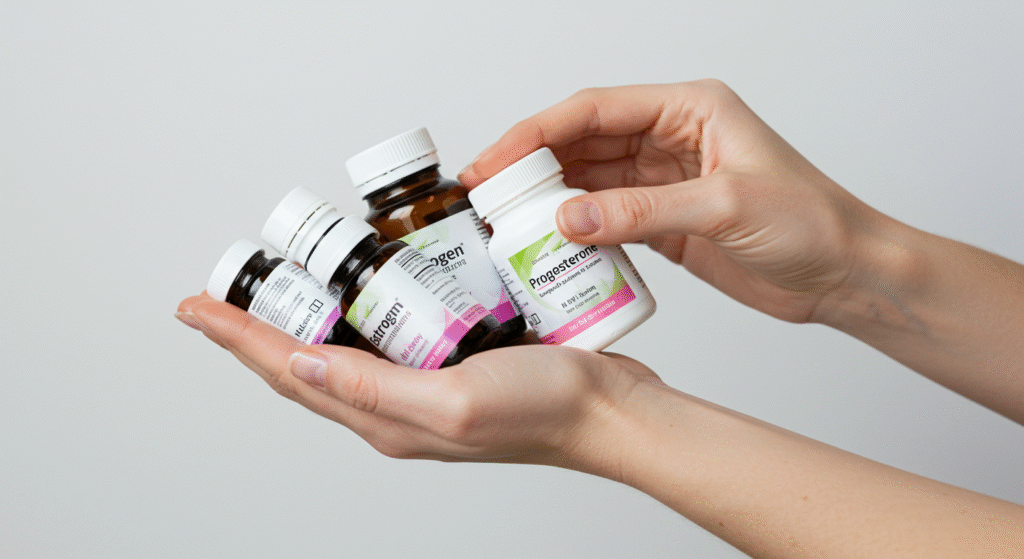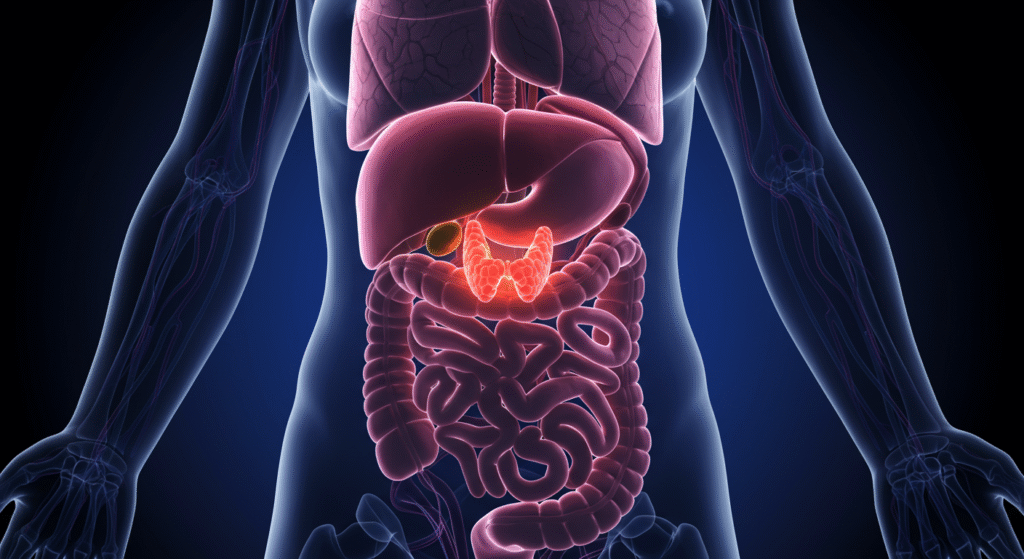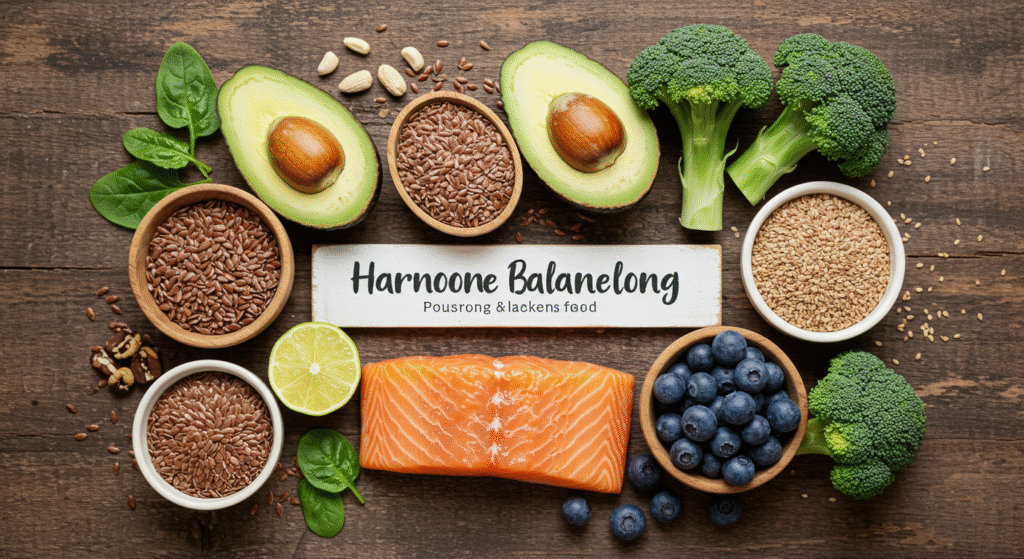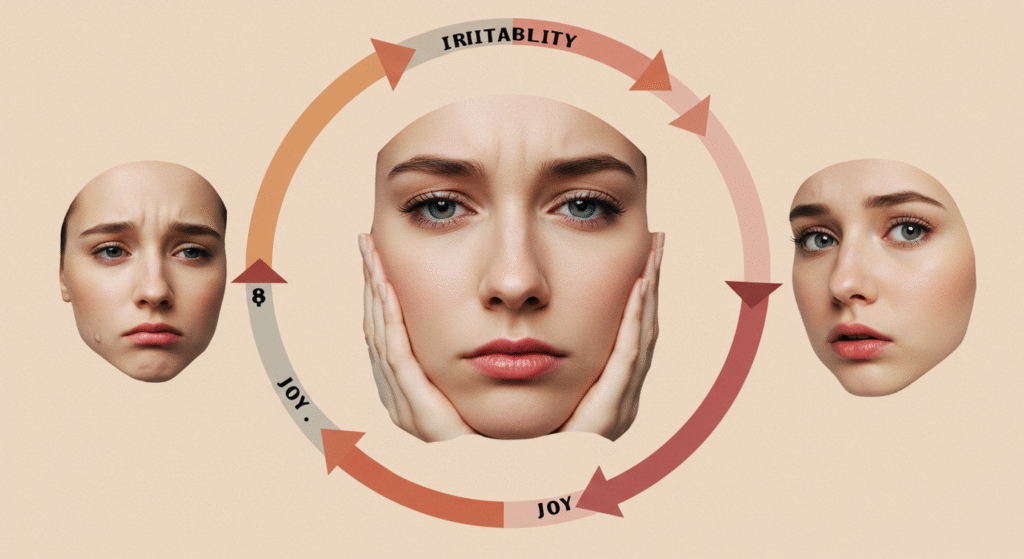“10 Essential Habits to Maintain Women’s Health at Any Age”
There’s a silent revolution happening inside the bodies of millions of women—and most don’t even realize it until it’s too late. The modern world has created a perfect storm of stress, hormonal imbalance, poor nutrition, and environmental toxins that are quietly sabotaging women’s health from the inside out. From unexplained fatigue and mood swings to irregular cycles and stubborn weight gain, these aren’t just random issues. They’re warning signs. And if left unaddressed, they can snowball into serious long-term health complications. Today, we’re breaking the silence. We’ll expose the hidden hormonal disruptors that are damaging women’s health, the everyday habits making it worse, and the science-backed ways to reclaim hormonal balance naturally—before it’s too late.

Hormones are your body’s internal communication system. They regulate nearly everything: metabolism, mood, energy, reproductive health, sleep, and even how your skin looks. When your hormones are balanced, your body functions like a well-tuned machine. But when they’re thrown off—even slightly—everything feels off. And for many women today, that’s exactly what’s happening. The causes? They’re everywhere: processed foods, chronic stress, lack of sleep, and even the plastic containers in your kitchen. These invisible threats quietly disrupt estrogen, progesterone, cortisol, and thyroid levels, triggering a cascade of symptoms that often get dismissed as “normal” or “just part of aging.” But let’s be clear—it’s not normal, and you shouldn’t settle for feeling subpar.

One of the biggest offenders is chronic stress. When your body is under constant pressure—whether from work, family responsibilities, or even emotional trauma—it floods your system with cortisol. This hormone is helpful in emergencies, but when it’s elevated for too long, it wreaks havoc. It steals resources from other hormones, like progesterone, leading to estrogen dominance. That means heavier periods, breast tenderness, irritability, and even fibroids or fertility issues. And the worst part? Many women are so used to living in this high-stress state that they don’t even recognize the damage being done. They normalize the burnout, the mood swings, the brain fog—and they push through. But that’s not strength. That’s survival mode. And it comes at a cost.

Diet also plays a major role in hormonal health, and unfortunately, many of today’s common “health foods” are doing more harm than good. Excess sugar, processed carbs, and refined vegetable oils disrupt insulin and cause inflammation—two major culprits behind hormonal chaos. Add to that hormone-injected animal products and pesticide-laden produce, and you’ve got a recipe for disaster. But the good news is, your body is resilient. With the right foods—like leafy greens, cruciferous vegetables, wild-caught salmon, chia seeds, and organic berries—you can begin to repair the damage. These foods support liver detox, stabilize blood sugar, and feed the gut microbiome, all of which are essential for balanced hormones. Food isn’t just fuel—it’s information. Every bite you take sends a message to your body. Make sure it’s saying the right thing.

But even if your diet is clean, hidden toxins can still sabotage your progress. Many personal care products marketed to women—like lotions, perfumes, and makeup—are filled with endocrine disruptors like parabens, phthalates, and synthetic fragrances. These chemicals mimic estrogen in the body and throw your delicate hormonal dance completely out of sync. Switching to clean, natural alternatives isn’t just a wellness trend—it’s a critical step toward protecting your long-term health. And don’t forget about plastic containers and water bottles. BPA, a chemical found in many plastics, is a known hormone disruptor. Opt for glass, stainless steel, or BPA-free products whenever possible. Small changes add up—and your hormones will thank you.

Sleep is another pillar of hormonal balance that often gets overlooked. Poor sleep disrupts your body’s natural circadian rhythm, which governs hormone production. If you’re sleeping less than seven hours a night or waking up frequently, your body struggles to regulate cortisol, insulin, and even sex hormones. Prioritize sleep like your health depends on it—because it does. Create a nighttime routine. Avoid screens two hours before bed. Keep your room dark and cool. And go to bed at the same time every night. These simple actions can have a profound effect on everything from your mood to your metabolism. Sleep isn’t a luxury. It’s hormonal therapy.

Let’s talk about movement. Not all exercise is created equal when it comes to hormonal health. While intense workouts like CrossFit or HIIT can be great for some, for women with adrenal fatigue or thyroid issues, they can actually make things worse. Overtraining increases cortisol and drains your energy reserves, leaving you feeling worse over time. Instead, focus on gentle movement—like walking, yoga, Pilates, or strength training with moderate intensity. These forms of exercise support hormone production, improve insulin sensitivity, and help regulate your cycle without pushing your body into a stress spiral. Exercise should energize you—not exhaust you.

Another overlooked factor? Emotional trauma and unresolved stress. Past experiences—whether childhood wounds, toxic relationships, or long-standing grief—can leave imprints on the nervous system that continually activate the body’s stress response. This keeps cortisol elevated and throws off the entire hormonal system. Practices like breathwork, therapy, journaling, and meditation aren’t just “self-care”—they’re hormone therapy. Healing emotionally is deeply connected to healing physically. Your body doesn’t forget pain—but it can release it when you create the right environment. And that’s where true hormonal healing begins—from the inside out.
So, what can you do today to start reclaiming your hormonal balance? Start small. Begin by reducing sugar and processed foods. Swap toxic personal care products for natural ones. Get serious about sleep. Breathe deeply. Move your body in ways that feel nourishing. And above all, listen to your symptoms—they’re not annoyances, they’re messages. Your body is talking to you. Don’t wait for a crisis to start listening. Hormonal health isn’t about perfection—it’s about connection. To your body. Your needs. Your rhythm. And when you align with that rhythm, everything changes—your energy, your confidence, your fertility, your skin, your mental clarity. It all starts to flow again.
Women deserve to feel strong, vibrant, and balanced—not overwhelmed, exhausted, and dismissed. And while the world might not teach you how to care for your hormones, you can choose to learn. You can choose to take your power back. Share this message with a sister, a friend, a daughter. Let’s break the cycle of silence around women’s health. Because when one woman heals, she gives others permission to heal too. And that’s how we create real change—from the inside out.
permission to heal too. And that’s how we create real change—from the inside out
If this message resonated with you, don’t keep it to yourself. Share this video with someone who needs to hear it. Subscribe to the channel for more science-backed health insights for women, and turn on the notification bell so you never miss a new episode. Your health is your power—start reclaiming it today.